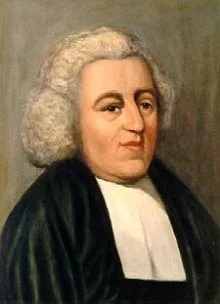Real Celebrities Never Die!
OR
Search For Past Celebrities Whose Birthday You Share

John Newton
Birthday:
04 Aug, 1725
Date of Death:
21 Dec, 1807
Cause of death:
Natural causes
Nationality:
British
Famous As:
Anglican cleric
Age at the time of death:
82
John Newton's Quote's
Early Life and Family Background
John Newton was born on August 4, 1725, in London, England. His early life was marked by various challenges that significantly influenced his later transformation and accomplishments. Newton’s father was a sea captain, and his mother, who died when he was just seven years old, played a pivotal role in his spiritual development.
Maritime Career and Spiritual Awakening
At the age of 11, John Newton joined his father at sea and began a tumultuous journey in the maritime world. However, his insubordination and rebellious nature led to conflicts with authorities. In 1743, during a particularly stormy voyage, Newton experienced a profound religious awakening. This event sparked a spiritual transformation, and he began to explore Christianity more deeply.
Struggles and Conversion
After leaving the sea, John Newton faced a period of uncertainty and financial struggle. During this time, he worked in various occupations, including serving as a slave trader. This part of his life stands as a stark contrast to his later commitment to the abolitionist cause. The turning point in Newton’s life occurred when he became seriously ill while on a slave ship in 1748. Fearing for his life, he fervently prayed for mercy, marking the beginning of his true conversion to Christianity.
Transition to Ministry and Abolitionism
Following his recovery, Newton left the slave trade and became involved in the abolitionist movement. He studied theology and, in 1764, was ordained as an Anglican minister. Newton’s journey from a slave trader to a clergyman and abolitionist highlighted the transformative power of religious faith.
The Creation of “Amazing Grace”
One of Newton’s most enduring contributions is the hymn “Amazing Grace,” written in 1772. The lyrics reflect his personal journey and the profound impact of divine grace on his life. The hymn went on to become a timeless and influential piece, resonating with people across different cultures and beliefs.
Ministry and Evangelical Influence
Professionally, John Newton served as the curate of Olney, a small town in Buckinghamshire, from 1764 to 1780. During this time, he collaborated with poet William Cowper on the “Olney Hymns,” a collection that included “Amazing Grace.” Newton’s preaching and hymn-writing contributed significantly to the evangelical revival in England.
Personal Life and Marriage
On a personal level, Newton married Mary Catlett in 1750, and the couple had a harmonious and supportive relationship. They remained married until Mary’s death in 1790. Newton’s marriage and family life became integral aspects of his later years, providing him with stability and companionship.
Advocacy for Abolition
John Newton’s advocacy for the abolition of the slave trade became increasingly vocal. He corresponded with influential figures like William Wilberforce, encouraging their efforts to end the inhumane practice. Newton’s firsthand experience in the slave trade gave weight to his abolitionist stance, and he played a crucial role in shaping public opinion against slavery.
Legacy and Impact
Newton’s impact extended beyond his lifetime, as his writings and hymns continued to inspire generations. He passed away on December 21, 1807, in London, leaving behind a legacy of transformation, redemption, and the enduring power of grace. John Newton’s life remains a testament to the ability of individuals to change, learn from their past, and work towards a more just and compassionate society.
Name:
John Newton
Popular Name:
John Newton
Gender:
Male
Cause of Death:
Natural causes
Spouse:
Place of Birth:
Wapping, London, Great Britain
Place of Death:
London, United Kingdom
Occupation / Profession:
Despite his unconventional past, Newton pursued theological studies and was ordained as an Anglican minister in 1764. His preaching and pastoral work in Olney, Buckinghamshire, had a lasting impact on the local community.
Newton collaborated with poet William Cowper on the “Olney Hymns.”
Newton’s early years were marked by a tumultuous time at sea and faced numerous challenges, including conflicts with authorities and even being pressed into service in the British Navy against his will.
Newton’s transformation from a slave trader to an abolitionist was profound. His firsthand experience in the slave trade fueled his later activism against it.
The famous hymn “Amazing Grace” was penned by Newton to illustrate a sermon on New Year’s Day in 1773.
Newton’s contribution to the abolition of the slave trade is widely acknowledged.
Newton’s hymn “Amazing Grace” is considered one of the greatest contributions to Christian hymnody.
